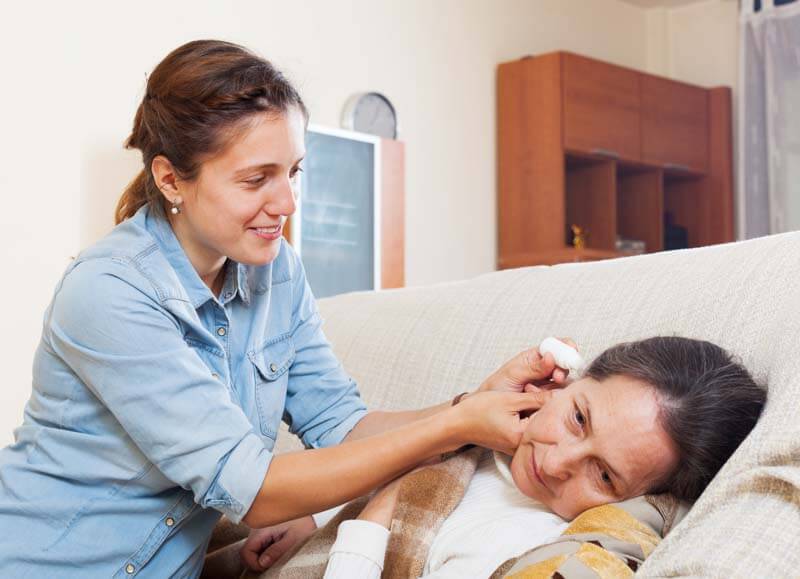
Earaches are a drag.
Those sensitive and oh-so-important sound sponges on either side of your head become quite the burden when they’re not feeling good.
It starts with ear pressure. A slight pain and ache. Not so bad. But soon your ears are collecting fluid and getting clogged.
Next, more pressure. More pain.
Pretty quickly things devolve and all of a sudden.. you have a full-blown ear infection!
Using Essential Oils for an Ear Infection
The ears a very sensitive part of the body and we should use caution when applying essential oils near them.
First of all: avoid applying essential oils – both neat and diluted – directly into the ears.
I repeat Essential oils really shouldn’t be put inside of an ear.
There’s just one recipe below that lists any placement of oils inside the ear very far (the simple cotton ball insert).
It’s important that one should only use this treatment if they’ve had their ear checked to ensure that the eardrum is not punctured.
Related: 14 Uplifting Essential Oils for Energy & Wakefulness
5 Essential Oil Based Recipes for Ear Infections
Below are five recipes which should provide you with some immediate relief from your discomfort.
1.) Simple Outer Ear Cotton Ball Remedy to Soothe Ear Pain

NOTE: This first recipe is for non-serious earaches caused by milk infections or a cold. If your earache is regular, persistent or severe you should avoid putting essential oils inside the ear and visit a doctor.
Ingredients:
- 6 drops of the one or a mixture of the following oils (Basil, Cajuput, Roman chamomile, Eucalyptus Radiata, Lavender, Rosemary, Tea tree)
- 1 tsp extra virgin olive oil or sweet almond oil
- 1 absorbent cotton ball
Directions:
- Combine carrier oil with essential oils in a 5 ml glass dropper bottle
- Apply 3 drops of the resulting mixture to a cotton ball and place in the external opening of the ear
- Repeat 3 times per day, as needed
Related: 12 Essential Oils for Sleep: Create a Relaxing Bedtime Routine
2.) Simple Hot Compress to Relieve Ear Pressure and Congestion
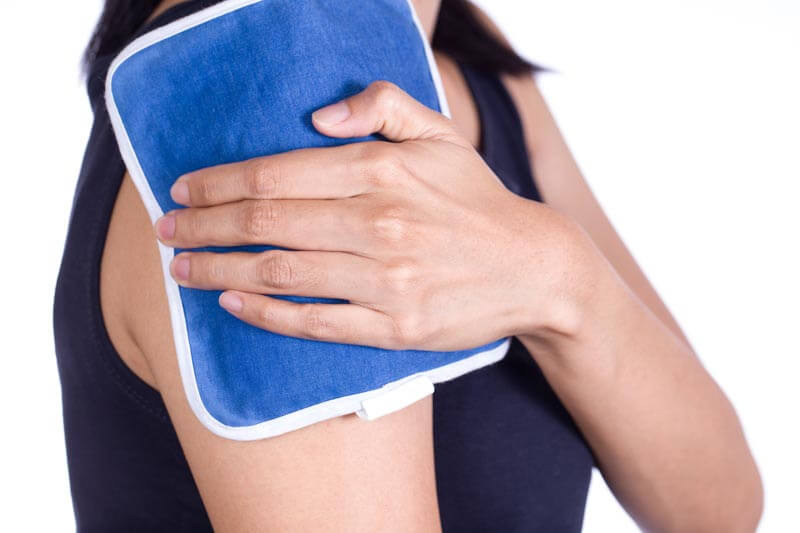
Ingredients:
Directions:
- Soak your cloth in very hot water, ringing out the excess
- Drop your essential oils onto the hot cloth
- Apply gently to the affected ear as often as desired
Related: 15 Essential Oils for Effective Anxiety & Stress Reduction
3.) Simple Soothing Massage Blend for Ear Pressure & Pain

Ingredients:
- 2 drops lavender
- 2 drops chamomile
- 1-2 drops tea tree
- 1 tsp carrier oil (argan, avocado, coconut, sesame, sweet almond, jojoba, grapeseed, macadamia)
Directions:
- Combine ingredients
- Gently massage around the painful areas around your ears
- Apply twice daily or more if desired
Related: 14 Potent Aphrodisiac Essential Oils for your Love life, Romance, Sex & Libido
4.) Simple Cotton Ball Insert for Ear Infection

NOTE: It is important that you apply oils inside the ear only after the eardrum has been examined by a doctor and shows no signs of perforation.
Ingredients:
- 2 drops lavender and/or chamomile
- 1 tsp warm almond oil or olive oil
- 1 absorbent cotton ball
Directions:
- Warm your oil and mix essential oils in with it
- Soak your absorbent cotton ball in the warm oil
- Gently insert the cotton ball into the outer ear
Recipe #5 has been removed. Sorry! But there’s more info below.
Related: How to Safely and Effectively Inhale Essential Oils
Alternative Natural Remedies for Ear Infections & Earache
It’s inadvisable to treat your infection solely with essential oils. They’re not necessarily a cure-all for this condition.
So here are some additional natural remedies that can help you get rid of your infection both safely and effectively.

Garlic Mullein Oil for Clogged ears, Pressure, and Infection
This remedy is the gold standard for natural ear infection treatments. Both garlic and mullein are antimicrobial and mullein is particularly soothing to the ears.
This medicine can be applied inside the ear if the eardrum hasn’t been ruptured, and if it has, it is best to massage it into the back of the ear
Related: 3 Best High-Capacity Essential Oil Diffusers for Large Rooms
DIY Garlic Mullein Recipe:
Ingredients:
- 1 bulb finely chopped fresh garlic
- 1-ounce mullein flowers
- 1-pint sesame oil
Directions:
- If you have time, infuse the ingredients over a week’s time in the sun. If you don’t have time simmer the ingredients in a double boiler (Bain-Marie) on low flame.
- Strain well into a glass jar and store in your refrigerator
- For application warm oil and use a dropper to place 3 or 4 drops inside the ear
- Once applied massage the outside of your ear and around the ear’s base
- Administer every 30 minutes, or as often as needed
You can make the DIY recipe above yourself or you can purchase ready-made garlic mullein oil here. Just be sure to warm it up before you put it in your ears!
Related: 7 Best Essential Oils for Effective Cellulite Treatment
NOW Foods Ear Relief Oil
This is a soothing ear relief blend that cleans the ear without irritating the delicate tissues in your ear canal.
The blend includes:
- Garlic
- Mullein
- Calendula
- St. John’s Wort
- Tea Tree Oil
- Vitamin E
- Olive oil
To use:
- Shake well
- Place 3-4 drops of warmed oil in each ear
- Plug ears with a cotton ball
Important: Do not use this oil if your eardrum is punctured.
You can find NOW foods ear relief oil here.
Related: 12 Essential Oils for Wrinkles and Aging Skin
Onion Poultice Remedy for Ear Pain
Onions are another supportive medicine for earaches and infections. They, like garlic, have sulfur compounds that come out in their vapor and break apart congestive mucus
Directions:
- Wrap a hot onion in a flannel cloth and apply to your ear
- Leave the hot onion on for 30-45 min. Reheat onion when needed
Healing Teas

Many people have had success with teas. Certain teas can support the immune system and improve recovery time.
Some of the most recommended teas include:
It’s good practice to add some elderberry syrup to your beverages to ad an extra immune stimulating boost.
Related: 8 Essential Oils for Hair Loss, Thinning & Alopecia
What exactly is an ear infection?
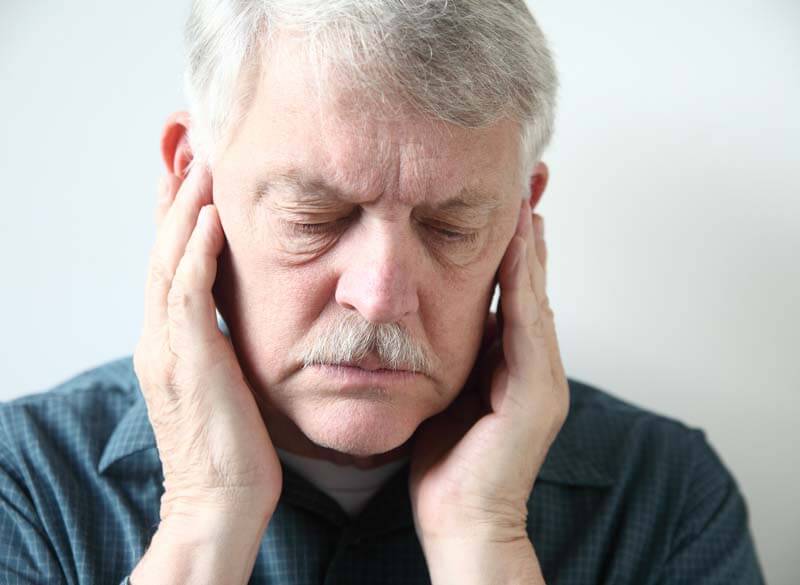
At first glance, an ear infection might seem just a small hindrance. But they can be just the opposite – since they’re often complex and hard to diagnose (and equally hard to treat).
There are two main kinds of ear infection:
- an outer ear canal infection
- an inner infection
Related: 8 Essential Oils for Weight Loss with Recipes & Application Tips
External/Outer Ear Canal Infection or “Swimmer’s Ear”
These occur when water that is too alkaline gets into the outer ear and creates irritation and/or a bacterial infection The cause of these infections is most often due to swimming in a pool that’s alkaline/acid levels aren’t well controlled. For this reason outer ear infections are also referred to as swimmer’s ear.
Outer ear infections are the most easily reached for treatment. Essential oil based treatments work well here, as well as vinegar drops* and do antibiotic drops (if the infection is bacterial). These infections can be prevented with vinegar and/or alcohol drops (such as “Swim-Ear) when used right after exposure to a pool.
Inner/Middle Ear Canal Infection
Inner ear infections are a bit worse. These are viral/bacterial and can cause severe pain, discomfort, tinnitus, vertigo and can potentially lead to a deeper infection. These infections, though acute, often resolve on their own accord (around 80% of the time). But if they’re not showing signs of receding, it’s important to get prompt medical support. Middle ear infections can’t be helped by ear drops because of their depth (unless the eardrum is ruptured).
It’s considered safe to wait for a 72 hour period to see if it will recede on its own. In the meantime use pain relievers and heating pads to reduce discomfort.
Related: 7 Essential Oils for Headaches & Migraines with Recipes & Application Tips
Diagnosing an Ear Infection
An earache can be a warning of a more severe problem, such as sinus congestion, mumps, measles or a toothache. It can lead to serious infections or another major complaint, so it should never be ignored.
For an official diagnose you’d want to visit a doctor. They have specific tools, like an otoscope, that help them look for signs of infections.
The signs that a doctor will look for include:
- Bulging eardrums. This is due to fluids and pus building up inside the ear.
- The eardrum is less flexible than normal.
- The eardrum has a cloudy appearance to it.
Related: 12 Pain Relieving Essential Oils for Nerve Pain
It’s possible that you could just have an earache
You might not be sure that the descriptions above resonate with your situation. In that case, you might not have a full blown bacterial/viral infection and instead are just suffering an achy ear following a cold.
Here are a few signs that you have more than a simple earache going on:
- The pain doesn’t go away even after your cold symptoms do.
- You’re suffering dulled hearing
- The pain is intense and more severe than your other cold symptoms
- You particularly “feverish”
- You have bouts of dizziness
- Difficulty sleeping
If you have none of those major symptoms, then yes it could be just an earache. 🙂
Related: 9 Top Essential Oils for Reducing Allergy Symptoms
4 Common Causes of Ear Infections
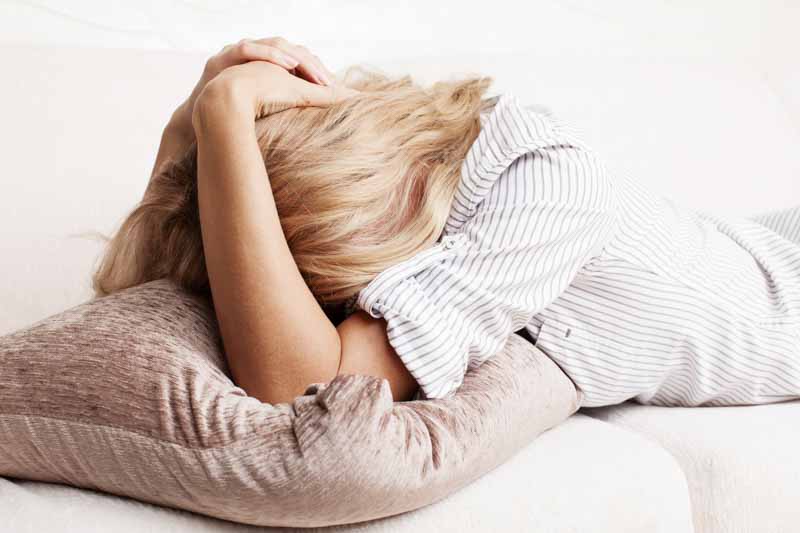
There’s a variety of ways someone can get an ear infection, but most cases of ear infection are due to weakened immunity.
Exposure to Infection Promoting Viruses / Bacteria
This is the most obvious cause. And it’s not a guarantee that someone will contract an infection. But for those more susceptible to infection a swim in a questionable pool is likely to result in getting an ear infection.
Antibiotic Use
There’s a big irony in ear infection treatments. It’s that antibiotic use can actually lead people to develop more infections – especially the chronic variety.
Yes – antibiotics can actually increase the likelihood a person to developing viral based ear infections in the future. Why is this? Because antibiotics disrupt the gut flora in our bodies – which in turn makes us more at risk of developing infections. The gut, after all, is the seat of our immune system (75-80% of immune cells reside there). So things that disrupt gut flora – like antibiotics, having a C-section birth or an early childhood infection – can drastically affect the bodies ability to fight off infection.
Another important point – which I will get into more later in the post – is that antibiotics aren’t always going to be effective for ear infections. The majority of ear infections are not even due to bacteria. Instead, they are viral – which antibiotics won’t remedy.
Related: 14 Essential Oils for Joint Pain & Discomfort
Food Allergies
Studies have shown that between 45% and 80% of kids with recurring ear infections have food allergies. This correlation means that there’s a high likelihood that allergies will play a role here. Again, food allergies, if triggered by eating the offending foods, will tax the immune system and cause it to become disregulated. If reactions are severe and not addressed autoimmune disorders can develop over time.
Typical offending food allergies:
- Grains (gluten)
- Dairy products
- Soy
- Peanuts
Excessive sugar intake can also be a factor.
Changing your diet then is an important consideration to take, especially for young children prone to infection.
Related: 7 Essential Oils for Back Pain & Sciatica
Disrupted Gut Microbiome
This relates to the antibiotic discussion above. When the gut bacteria (microbiome) is disrupted and lacks sufficient immune supporting bacteria we are at higher risk of infection. This is more common in today’s world that in civilizations passed.
Why Ear Infections can be a Big Challenge to Treat
While essential oils can help make us feel better and better able to weather the storm of infection, they’re unlikely to give substantial curative support by themselves. Other natural remedies like the ones listed above can provide much more support.
In an ideal world, we would have a doctor take samples of the infection and know right away if the infection is viral or bacterial.
If it was bacterial, they would be able to tell us which type of bacteria it is. Then they could prescribe a narrow-spectrum antibiotic that just attacks that particular form of bacteria that we are infected with.
But the reality is far from that. Instead, we’re unable to tell the source of the infection and thus unable to treat it with a specific methodology. Because of this, we have an unnecessary amount of antibiotics being prescribed which aren’t always going to be effective and will end up hurting us in the long run.
If you want to learn more about the importance of avoiding excessive antibiotic use I recommend reading the book Missing Microbes by Dr. Martin Blaser.
The best thing we can do is to monitor an infection closely and treat it sans antibiotics and see if it responds. If it doesn’t respond well to the treatments over the course of a few days, then one should consider opting for the antibiotic route.
Related: Essential Oil Based Remedies for Nausea, Vomiting & Upset Stomach
Should you use antibiotics for an ear infection?
If you head to the doctor for your ear infection, chances are you’ll be leaving the dr. office with a prescription for antibiotics. While antibiotics can be effective for treating some ear infections, their use might not be as widely applicable as we’ve been lead to believe.
For a long time, the predominating belief among most researchers and doctors was that the majority of ear infections were bacterial. But it is now believed that up to 80% of ear infection cases- possibly even more – are viral in nature. And viral infections aren’t weakened by antibiotics.
Even though the research has been showing this change in understanding, it’s unlikely that many doctors will suddenly stop prescribing antibiotics. This is partly because patients and parents of patients can be hard-pressed to choose another option. It goes against what they’ve known.
So, antibiotics might just have a 2-in-10 chance of being effective. That’s not too big of a deal, and maybe worth a try for some people.
But nowadays we know that antibiotics aren’t as harmless as we once thought. In fact, they actually might make us more susceptible to contracting more infections in the future by damaging our healthy immune-boosting gut flora. And the more we get infections, the more we may take antibiotics, and it can become this kind of self-fulfilling prophecy kind of loop.
With that being said I don’t recommend avoiding antibiotics in all cases. Ear infections are a difficult problem because complications from a middle ear infection going deeper can be deeply problematic. You just have to use your discernment.
Conclusion
This has been a lot of information. I hope it’s been helpful to you.
The major takeaways here to think about are to keep potential causes in mind and eliminate them. If you’ve dealt with chronic ear infections you’ll want to investigate your gut health and improve the levels of beneficial bacteria in your system. This will boost your immune system.
An additional measure you might want to take is to get your blood tested. This is most highly recommended if you suffer from chronic health problems.
Some tests you might consider having done to access your immune health:
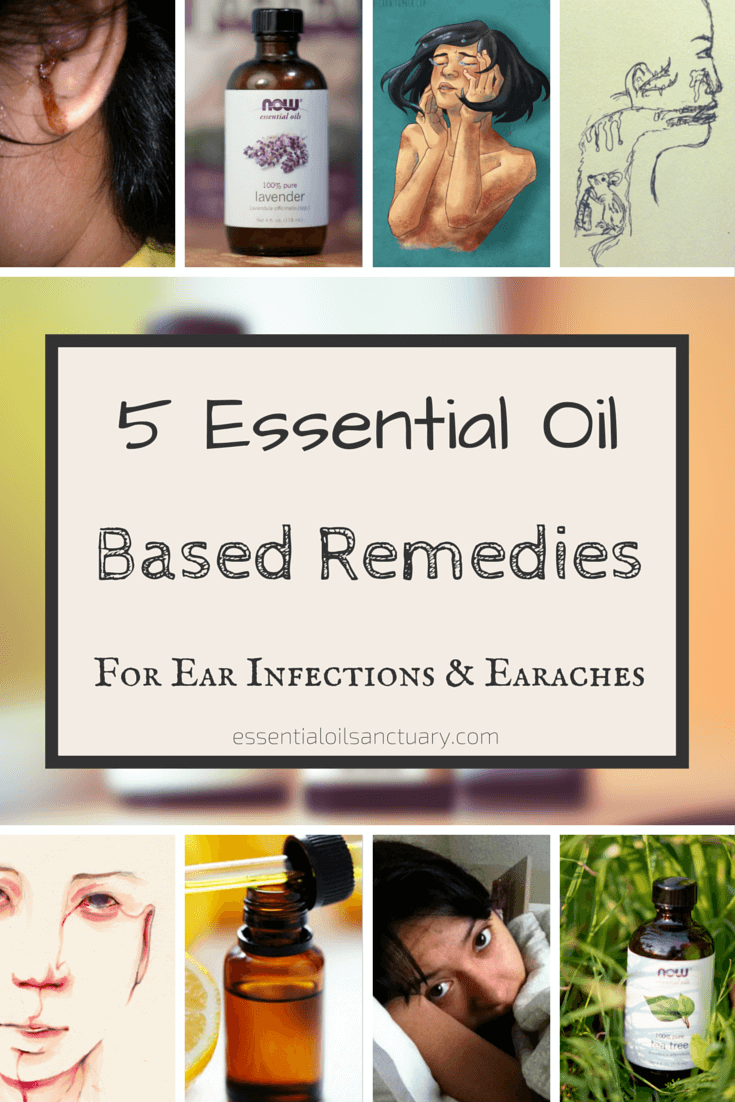
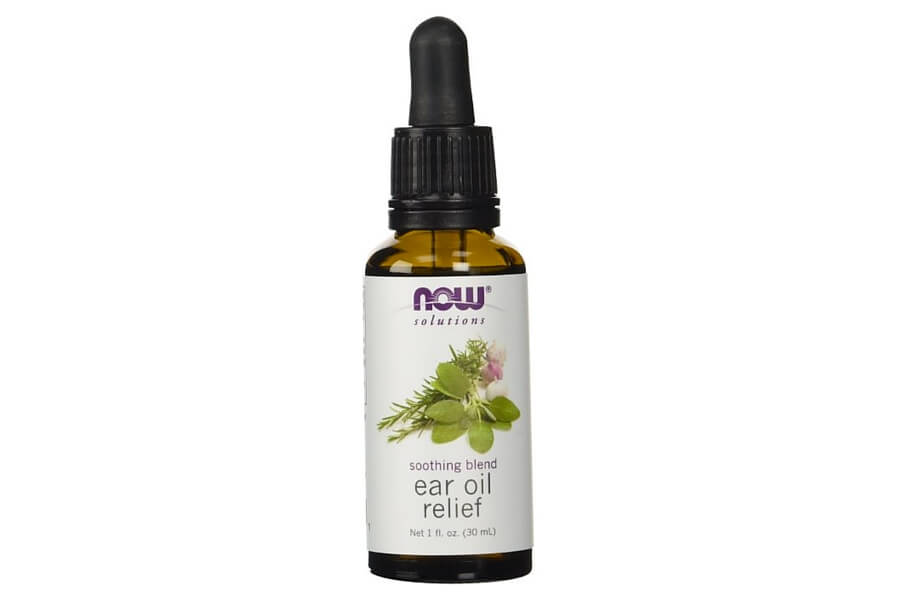

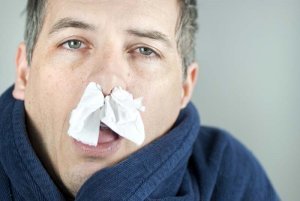

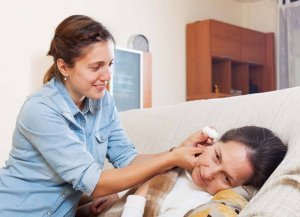
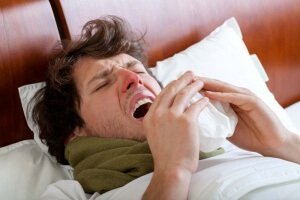
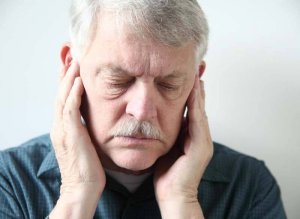
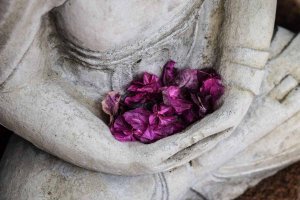



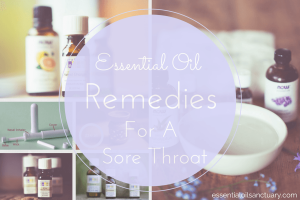

11 thoughts on “Relief! 5 Best Essential Oil Remedies for Ear Infections / Earaches”
Thank you for sharing all this information.
I noticed a typo that might be helpful to fix.
“Important: Do you use this oil if your eardrum is punctured.”
Thanks, fixed 🙂
I would like a recipe for killing fleas on small dog. I thank you very much.
Food Grade Diatomaceous Earth. It will make the dogs hair feel matted, but easily washes out. We got fleas from the neighbors a couple of years ago and I did this with my two dogs, plus put the earth under my furniture (where fleas like to hide), and sprinkled it in some areas where the dogs spent most time. Be careful and don’t just dump it as it can get into your lungs. Safe for dogs and humans to ingest. Won’t kill the eggs, but kills larva and adults. Will kill about any bug that gets into it.
For more than 25 years I’ve been using olive oil laced with essential oils of lavender, ti tree, and eucaplyptus and garlic for all ear issues. Been using it on my own 8 kids and now on my 21 grandchildren (some in their 20’s now) with great success.
My youngest (now 25) got an ear infection the same week she was 9- and of course, on a Sunday when doctors are not available. I gave her aspirin for pain (only not safe if they have chicken pox (she’d already had these) or the flu (she was not sick), then made an onion poultice and put it on her affected ear and the jawline as she complained it hurt there, too, Kept on for almost an hour. Put 2-3 drops of laced oil in her ear and then a cotton ball. Four hours later, gave her more aspirin for pain and added drops to her ears again, with a cotton ball. Right before bed had her take out the cotton ball.
I thought I was going to be up with her all night. She slept in till morning and got up after I did. All the infection had pulled out of her ear and was dried in a crust all over her face, neck, in her hair, She had to get into the shower to wash her hair and face.
To this day she has never again had an ear infection or complained of her ears hurting her. She is now married with a child of her own.
What is your recipe? Sounds wonderful! Thanks for sharing.
what is laced oil?
You did so many wrong things, never put anything in the ears but worst of all No child under 16 should have Asprin, haven’t you heard the guidelines on Asprin.
Hello, I need help for fluid in my inner ear. I have been diagnosed with Mieners Disease in my right ear. I have been under a lot of stress in the last few months…….family member hospitalized, elderly parents living with me now, my job, etc……..I awoke one morning with an excruciating headache around the top of my head and lost hearing in my right ear. I have had test after test and “they” say there is nothing that can be done but put me on a diuretic! Can anyone suggest essential oils for getting this fluid out of my inner ear?
Thank you
I use purification by rubbing it behind my ears. Start at the top and rub down past the jaw line. Purification is a blend of citronella, lavandin, lemongrass, Rosemary, myrtle and tea tree.
Helichrusym has helped my Meniere’s but only the ringing and severe bouts. There is no cure for it, unfortunately.